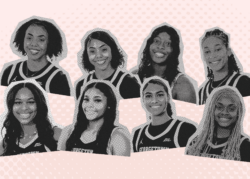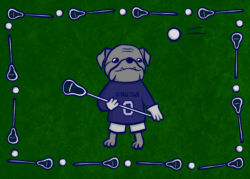As fans, we often insulate ourselves from the complex relationship between sports and society. The games and narratives offer an exciting and romantic experience, allowing us to escape from the trials of reality. And yet, sports can also painfully remind us of conflicts and struggles in the all-too-real sociopolitical world.
Miami Marlins manager Ozzie Guillen reinvigorated this idea with his remarks regarding Cuban dictator Fidel Castro in a recent interview with Time. He ironically expressed his admiration for Castro (albeit referring to him colloquially as a “son of a bitch”) for his decades-long staying power, in spite of the frequent attempts to take his life. The immediate public outrage and embarrassment, especially within Miami’s large Cuban community, prompted both a comprehensive apology from Guillen—unusual for his outspoken character—and a five-game suspension to be enforced by the Marlins.
The reaction to Guillen’s comments underlines sports’ undeniable significance in the communities they engage. Guillen is more than just the manager of a professional baseball team—he is a figurehead and representative of the Miami community. While most around the country will get over his poor judgment in expressing his simplistic and rather childish understanding of Castro, Cuban-Americans and those living in the Miami area struggle to find forgiveness for his insensitivity and immaturity. As someone who holds such a prominent role in the public eye, he should know better.
His words are all the more discouraging given that he was specifically hired to foster stronger ties with Miami’s sizeable Latin American community. It only took him a few games to disgrace himself in the hearts and minds of this crucial group within the Marlins’ fan base, and his mistake could also not have come at a worse time for his employers. The Marlins entered this season oozing expectations, with a new ballpark, big-name free agent signees, and even a new name and logo to emphasize their commitment to building a new identity for the franchise.
Though our country upholds cherished laws regarding free speech, the organization was left with no choice but to administer punishment to its main spokesman for such a foolish moment. Further action could still be taken, as protests throughout the past few days by the Cuban-American community have called for Guillen to get his pink slip. Should the Marlins’ front office find its connection to the fan base irreparably severed with Guillen at the helm, the team may be forced to move in a different direction. His sincere and well-articulated apology seems to have only partially healed the wounds he ripped open regarding the incredibly delicate issue of Castro and Cuba.
However, it is difficult to believe that had Guillen been the manager of another team, one with a smaller Latino and specifically Cuban following, that he would have been met with the same vitriol and potential consequences for these actions. Surely he would still have been attacked in the media and required to express remorse, but it is unlikely that his job would be threatened, especially given the incredible hype that surrounded Guillen and the Marlins coming into the season.
We must also ensure that Guillen’s chastising is not misrepresented or misunderstood. It is important to consider the reaction to Guillen’s comments as a specific case of stupidity and insensitivity, rather than a condemnation of athletes speaking publicly about political and social issues in general. Guillen’s comments came from an ignorant and uninformed position completely unrelated to politics. Though harmless and even innocent in their intent, his words directed remarkable insensitivity to a prominent local issue, inflaming the scars of a long, historic struggle.
Athletes and coaches on a whole, however, should not be discouraged from entering in political and social discourse, as long as they can do so maturely, thoughtfully, and respectfully. This does not give anyone with an opinion the right to run his or her mouth, but rather that public figures should express informed, critical, conscientious opinions about important issues. As popular and revered public figures, these individuals have a considerable role to play in civil society, though few actually choose to do so, either out of disinterest or fear of a backlash. While it is important that such figures remain respectful and limit the negative publicity directed at their organization, they must also demonstrate the importance of remaining socially and politically conscious, lest our citizens and communities be taught that intelligently conversing about one’s political beliefs is a fault rather than an essential activity to maintain justice and progress. Otherwise, we all may become as ignorant as Guillen was during that interview with Time.
We love to lose ourselves in the world of sports, but we must be careful not to confuse it with reality. Though we may forget them for nine innings, daily struggles and hardships continue to exist around us. Our athletes, with their tremendous public influence, have a privileged chance to facilitate change. Let’s hope the fallout from this regrettable incident does not further discourage them from aspiring to be more than just sports heroes.





